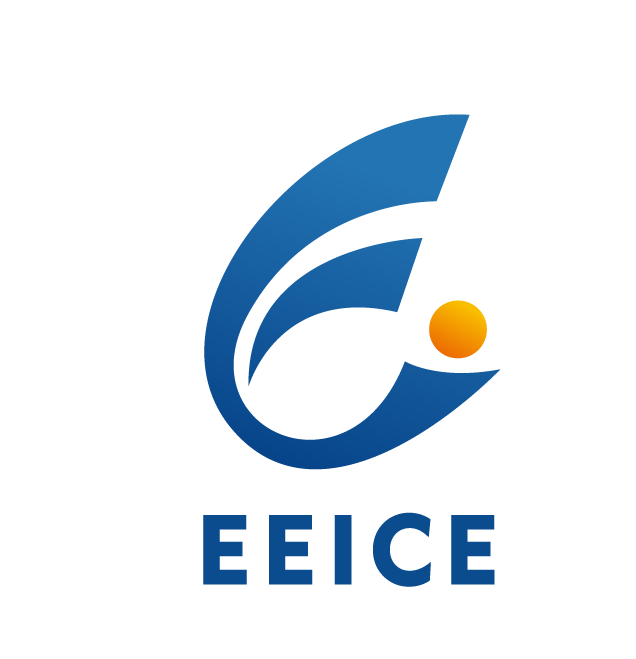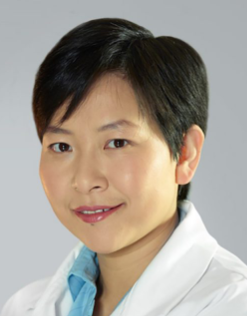
Prof. Baohua Jia
Optica/IMO3 Fellow
Fellows of the Australian Academy of Technology and Engineering,ATSE
RMIT University, Australia
Baohua Jia joined RMIT in 2022 as a full professor and Australian Research Council Future Fellow (Level 3) in School of Science. She is the inaugural Director of Australian Centre for Atomaterials and Nanomanufacturing (ACAN). Before joining RMIT Baohua Jia was a full Professor, Founding Director of Centre for Translational Atomaterials and Research Leader at Swinburne University of Technology. She received her BSc and MSc degrees from Nankai University, China. She was awarded a PhD from Swinburne University of Technology, Australia. Professor Jia is an elected Fellow of Optica (previously known as Optical Society of America (OSA)) and an elected Fellow of Institute of Materials, Minerals and Mining (IoM3). Since 2019, Professor Jia has been serving as the Australian Research Council College of Expert. Prof. Jia's research focuses on the fundamental light and nanomaterial interaction. In particular her work on laser manipulation of two-dimensional materials has led to the design and fabrication of functional nanostructures and nanomaterials for effective harnessing and storage of clean energy from sunlight, purifying water and air for clean environment and imaging and spectroscopy and nanofabrication using ultrafast laser towards fast-speed all-optical communications and intelligent manufacturing. She has co-authored more than 300 scientific publications in highly ranked journals including 1 Chemical Reviews (IF: 60.622), 2 Nature Photonics (IF: 38.771), 9 Advanced Materials (IF: 32.086), 2 Advanced Energy Materials (IF: 26.52), 1 Nature Review Chemistry (IF: 34.571), 2 Nature Communications (IF: 14.919), 3 Light and Science Applications (IF: 17.782), 1 Journal of the American Chemical Society (JACS, IF: 15.419) and 5 Nano Letters (IF: 11.189). 50 papers were published in journals with an impact factor >10 and >60 papers were published in journals with an impact factor >6. Her H-index is 59 (Google Scholar) with >12,500 citations. She has delivered >70 Plenary, Keynote and Invited talks at prestigious international conferences and serves multiples professional committees internationally and nationally, including the Joint Standards Australia/Standards New Zealand Committees. She was the Honorary Treasurer of Australian Optical Society (AOS) from 2015-2017. She also has been serving as the Associate Editor for APL Photonics since 2017 and Photonic Insight since 2021.
Speech Title: TBD
Abstract: TBD
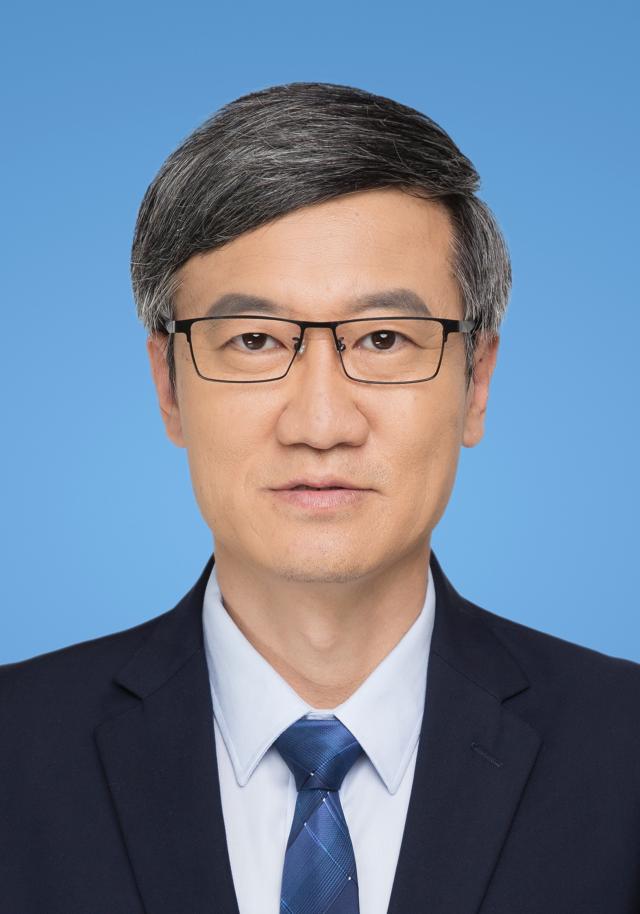
Prof. Shanguo Huang
The National Science Fund for Distinguished Young Scholar
Epert obtaining the special allowance of State Council
Beijing University of Posts and Telecommunications, China
Shanguo Huang, Professor, doctoral supervisor. In 2006, he graduated from Beijing University of Posts and Telecommunications, majoring in electromagnetic field and microwave technology. He is currently Vice President of Beijing University of Posts and Telecommunications and Director of the National Key Laboratory of Information Photonics and Optical Communication. The winner of the National Outstanding Young Science Fund in 2021, the project leader of the national key research and development plan, and the expert enjoying the special government allowance of The State Council. He served as the executive director of the Chinese Society of Electronics, the vice chairman of the Optical Communication and Information Network Special Committee of the Chinese Society of Optical Engineering, and the overall expert of the key projects of the 14th Five-Year National Key research and development Plan, and has served as the chairman of the ACP2020 Workshop, the chairman of the CECnet2021 conference, and the chairman or co-chairman of several international academic conferences. He is mainly engaged in the research of intelligent optical switching and optical network, proposes the three-dimensional protective optical networking method and structure, and constructs the three-dimensional optical network supporting Pbit-class large-capacity optical switching, and the results are applied to private communication networks, military and civilian backbone networks and aerospace communication networks. He has presided over more than 10 state-level scientific research projects, including national key research and development programs, National Natural Science Foundation key national cooperation projects, national 863 Program, national 973 program cooperation projects, and presided over a number of important research institutions and enterprises in the industry. In recent five years, he has published 43 journal papers represented by IEEE Tran.Commun., 2 ESI highly cited papers, more than 10 invited reports in international conferences, and won the best paper award in ICOCN, ACP International conferences, J Optics and OSN journals for many times. At the European Optical Communication Congress (ECOC), he made an invited report and published 3 ACP Post-deadline papers. It has authorized more than 40 national invention patents, 3 international patents, and published 4 academic monographs. He won the first prize of Technological invention and Scientific and Technological Progress of the Chinese Society of Electronics and the first prize of China's industry-university-research Cooperation Innovation achievements. He has been selected as the National Outstanding Youth Science Fund, as well as the New Century Outstanding Talents of the Ministry of Education, Beijing Science and Technology New Star and Beijing University Young Talents. His current research interests are multidimensional optical switching and optical network theory and technology, including large-scale intelligent optical switching and data optical networks, transmission network planning and optimization, ground, space and space optical switching and networking.
Speech Title: TBD
Abstract: TBD
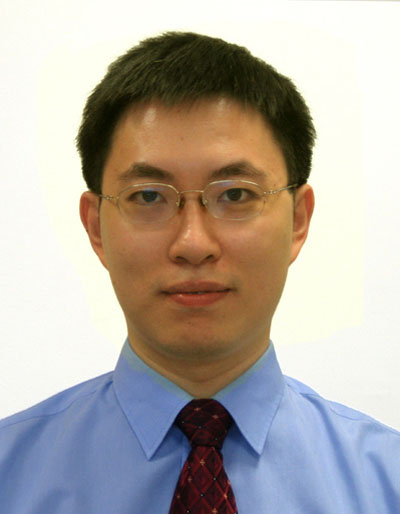
Prof. Changyuan Yu
Optica/OSA Fellow, IEEE Senior Member
The Hong Kong Polytechnic University, China
Prof. Changyuan YU received his B.S. in Applied Physics and B. Economics in Management from Tsinghua University, China in 1997, M.S. in Electrical and Computer Engineering from University of Miami, USA in 1999, and Ph.D. in Electrical Engineering from Optical Communications Lab at University of Southern California, USA in 2005. He was a visiting researcher at NEC Labs America in Princeton, USA in 2005. He then joined the faculty of National University of Singapore (NUS) in 12/2005 and served as the founding leader of Photonic System Research Group in Dept. of Electrical and Computer Engineering till 12/2015. He was also a joint senior scientist with A*STAR Institute for Infocomm Research in Singapore in this period. And he was a visiting professor with Dept. of Electrical and Electronic Engineering, University of Melbourne, Australia in 2007. In 12/2015, he joined the faculty of The Hong Kong Polytechnic University, where he is now a full professor in Dept. of Electronic and Information Engineering. While he also continues as an adjunct faculty member of NUS. His research focuses on photonic devices, subsystems, optical fiber communication and sensor systems, and biomedical instruments. He has been the PI/co-PI/co-I of 50+ research projects with over 10 million US dollars fund from the government agencies and industries of Singapore, Hong Kong, mainland China, USA, and Australia, and supervised 20+ postdocs and 40+ PhD students. He has authored/co-authored 10+ patents, 6 book chapters, and 600+ journal/conference papers (100+ keynote/invited, including OFC in USA). He served in organizing or technical program committees for 100+ international conferences, and Telecommunications Standards Advisory Committee for Singapore government. His group won 8 best paper awards in conferences and the national championship (biomedical area) in the 3rd China Innovation and Entrepreneurship Competition in 2014. He is an Optica/OSA fellow.
Speech Title:TBD
Abstract: TBD
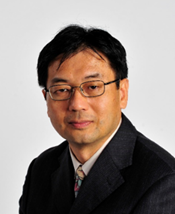
Prof. Qing Zhang
Nanyang Technological University, Singapore
Qing Zhang is a Professor at Centre of Micro-/Nano-electronics, School of Electrical and Electronic Engineering, Nanyang Technological University, Singapore. His main research interests cover the electronic properties and applications of low dimensional electronic materials, energy storage devices and energy harvesting devices, etc.
Prof Qing Zhang and his team have been studying the influences of metal/carbon nanotube (CNT) contacts, adsorbed molecules and functional chemical agents on the electron transport prioperties in CNTs since 1998 and have successfully demonstrated a variety of CNT electronic devices, including CNT logic gates, CNT OLED drivers, CNT flexible logic gates, CNT bio/chemical sensors, optical configurable CNT and ITO complementary logic gates, etc. They have made a significant contribution to enhance the stability of high specific capacity of carbon based anodes for Li-ion batteries. In 2014, they demonstrated high performance flexible Li-ion batteries with flexible coaxial Ni/PVDF nanofiber network and carbon fiber network. In 2017, Prof Zhang and his team successfully developed a unique electric generator with intermittently contacted p- and n-type doped semiconductor as the electrodes, in which both conduction and displacement current are generated.
Speech Title: Application of two-dimensional piezoelectric materials in thin film bulk acoustic resonators (FBAR)
Abstract: As the demands of 5G and emerging 6G communications expand operating frequency bands into higher GHz ranges, RF filters—composed of film bulk acoustic wave resonators (FBARs) matrices—become critical for signal filtering. Achieving resonance frequencies above 20 GHz requires conventional piezoelectric materials like AlN, PZT, and ZnO to be sub-0.1 µm thick. Unfortunately, such thin films typically suffer from randomly oriented polycrystalline structures and high surface roughness, degrading piezoelectric performance and causing significant acoustic wave scattering. In contrast, 2D piezoelectric materials, such as 3R-MoS₂ and α-In₂Se₃, feature atomically flat surfaces and maintain excellent piezoelectric/ferroelectric properties even at the single atomic layer. In this presentation, I shall present our recent development of 2D materials based FBARs, achieving performance metrics unattainable with conventional piezoelectric materials. The demonstrated 3R-MoS₂- and α-In₂Se₃-based FBARs represent a substantial leap in acoustic device performance, addressing the limitations of traditional technologies. These studies highlight the immense potential of 2D piezoelectric/ ferroelectric materials for next-generation high-performance acoustic devices, opening new pathways for advanced acoustic device applications in cutting-edge wireless communication systems.
Acknowledgements: This research is supported by the Ministry of Education, Singapore, under its Academic Research Fund Tier 2 MOE-T2EP50223-0008, Singapore.
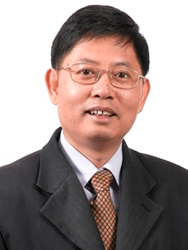
Prof. Tupei Chen
Nanyang Technological University, Singapore
Tupei Chen is a tenured faculty member in the School of Electrical and Electronic Engineering at Nanyang Technological University, Singapore, where he has been teaching and conducting research in the field of Microelectronics for 25 years. He is the author and co-author of over 320 peer-reviewed journal papers, more than 130 conference presentations, one book, and six book chapters. He has filed 15 U.S. patents and 12 Technology Disclosures. He is the supervisor & co-supervisor of 30 PhD students and 23 postdoctoral research staff. He is the Principal Investigator (PI) and Co-Principal Investigator (Co-PI) of more than 20 research projects with a total grant amount exceeding S$30 million. His current research interests include on-chip ESD and latchup protection, memory devices, memory-based computing (in-memory computing, neuromorphic computing), and thin-film transistors and applications.
Speech Title: Memory-based Computing
Abstract: Today’s computing systems are based on the von Neumann architecture where large amounts of data must be moved between the processing and memory units. In the era of big data and AI, the von Neumann architecture faces significant challenges in terms of speed and energy cost. Memory-based computing emerges as a promising paradigm to address the challenges by integrating memory and computation. This presentation will delve into two key aspects of memory-based computing: in-memory computing and neuromorphic computing. In-memory computing leverages the inherent parallelism and high bandwidth of memory devices to perform computations directly within the memory array. Typically, certain computational tasks are performed in place in the memory itself organized as a computational memory unit. On the other hand, neuromorphic computing, inspired by the human brain, aims to replicate the brain's neural architecture and functionality using electronic neurons and synapses. Analog memory devices, which act as a memristor, such as resistive random-access memory (ReRAM), phase-change random-access memory (PRAM), and ferroelectric random-access memory (FeRAM), have been suggested for emulating the functions of neurons and synapses.
